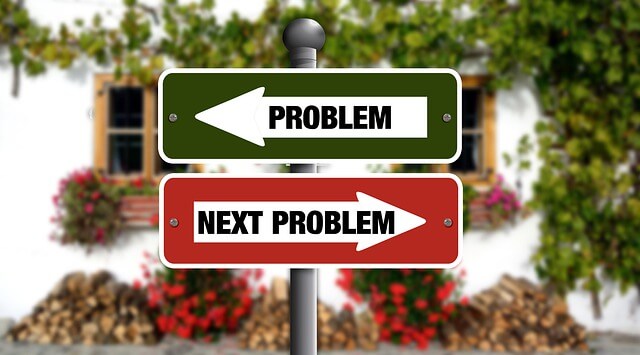How Can Time Management Reduce Stress?
Can even be a possibility for time management to reduce stress?? As a business owner, executive or an individual, the demands of everyday life can be overwhelming. The daily stresses of life can be challenging and can lead to various health problems, including stress, anxiety, and depression.
In today’s fast-paced world, most of us struggle to manage time effectively, and we end up feeling overwhelmed and stressed.
The Connection Between Time Management, Mindfulness and Stress reduction
Have you ever thought that another way could be possible out there?
How could you manage these feelings and improve your overall well-being?
| Enter Mindfulness. |
Mindfulness is a form of meditation that involves focusing your attention on the present moment, without any judgment.
It is a simple practice that can have a significant impact on your overall health and well-being: the human brain is not made for handling various trains of thoughts at the same time.
By focusing on the present moment, you take advantage of this “useful limitation”, nullifying other thoughts or concerns.
As a result, you reduce stress, increase productivity, and improve your overall quality of life.

Mindfulness meets time management
Now, Time management and mindfulness are closely connected, as both involve being present and intentional with one’s actions.
While Mindfulness is the practice of being fully present and aware of one’s thoughts, feelings, and surroundings, Time Management involves managing one’s time effectively to achieve goals and complete tasks.
In other words, as you practice mindfulness, you become more aware of your thoughts and emotions, and this focused awareness helps you stay motivated, on track, and maximize your personal resources.
As your awareness (your present self) is absorbed by the present moment, you automatically cut away distractions and complete tasks in a fraction of the time, which consequently generates more free time and a better work-life balance.
Furthermore, time management and mindfulness practices reinforce each other.
For example, taking regular breaks and engaging in self-care practices such as meditation or exercise can help individuals recharge and stay focused, which can ultimately lead to better time management.
On the other hand, by prioritizing time for important activities and eliminating distractions, everyone can create a more peaceful and mindful environment that supports their overall wellbeing.

OK! What about some practical tips to help you kickstart mindfulness and time management into your habits? Read on my friend 🙂
Start Your Day with Mindfulness Meditation
Starting your day with mindfulness meditation can help you set a positive tone for the day ahead. Take a few minutes each morning to focus your attention on your breath and clear your mind the way you desire to.
This simple practice will help you start your day centered, in control, with a clear mind and a sense of calm, which sets the tone for a productive and stress-free day.
Take Regular Breaks
Taking regular breaks throughout the day is the way to stay focused and avoid burnout. Set a timer for every 25 min (or 45-60 minutes if you wanna go hardcore) and take a short 5 min break to stretch, walk around, or simply close your eyes and take a few deep breaths.
This is a proven technique to recharge and refocus, which increases productivity while reducing stress at the same time.
But there is more to this technique (a.k.a The Pomodoro Technique) , I wrote a full article on this very subject, check it out!

Try a Time-Tracking Tool
Using a time-tracking tool helps you monitorìing how you’re spending your time and identify weak spots where you can make adjustments.
The tools available today are too many to name them here, as a little suggestion you could try Toggl, RescueTime, and Harvest.
In conclusion, by incorporating mindfulness and time management into your daily routine, you can reduce stress, increase productivity, and improve your overall well-being. Start slow and easy by practicing mindfulness meditation a bit each morning,, taking regular breaks, practicing mindful eating (more later), and using a time-tracking tool.
These simple practices will have a dramatic impact on your lifestyle, guaranteed! 😊
(and by the way, do you wanna stay productive and centered every day? Read on!)
The Benefits of Deadlines for Managing Stress
Can the use of deadlines in Time management reduce stress?
Deadlines are an integral part of our lives, whether we’re working on a project at work, completing an assignment for school, or trying to achieve a personal goal. While deadlines can sometimes be a source of stress if you do not understand their precious function, they can also be incredibly beneficial for managing stress. Let’s see how.
Deadlines Help Prioritize Tasks
Deadlines can help you prioritize your tasks, giving structure and focus to your schedule.
Think about it : the very idea of “deadline” can only be related to a specific task that must be completed by a specific time. And this concept forces you to schedule tasks in sequence, which helps you not feel overwhelmed and ensure that you’re using your resources effectively while maximizing your productivity.

Deadlines Provide Structure
As a good companion of the previous paragraph, deadlines provide structure and help you organize your time effectively.
isn’t that self explanatory? When you have a deadline, you know that you have a limited amount of time to complete a task.
You have to stay focused, avoid distractions and complete that particular task.
Since your brain cannot focus on different things at the same time, you are gently forced to immerse yourself in the required actions to complete this activity on time. While this strategy leads to increased productivity, it also provides an improved work-life balance as a natural consequence of stress reduction..
Deadlines Can Motivate You!
Deadlines can be a powerful motivator.
When you have a deadline, and time is running out you know that you must “take the bull by the horns” and complete the task by a specific time.
This concept can be especially beneficial when working on long-term projects or when you’re feeling overwhelmed.
The key here is breaking the project down into smaller, manageable tasks and setting deadlines for each task, thus managing fatigue, scoring a bigger number of “wins” (accomplishments) and reducing stress.
Deadlines Provide a Sense of Accomplishment
When you meet a deadline, it provides a sense of accomplishment and enthusiasm by the flow of endorphins released from your body.
So learn to set realistic deadlines and meet them : you will build more confidence and self-esteem, which can help you manage situations of stress more effectively.

Deadlines Can Help You Avoid Procrastination
The act of procrastinating frequently causes tension. When you put off doing something, the deadline pressure frequently leaves you feeling anxious and overwhelmed..
But Deadlines are there to help you avoid procrastination by providing structure, focus and motivation.
You can prevent feeling overwhelmed and combat stress by segmenting a project into smaller, more achievable jobs and setting deadlines for each of them.
Some more insides about the power of deadlines in this evergreen article by Forbes.
Why Setting Realistic Deadlines is Crucial for Stress Management
Realistic Deadlines Provide Clarity
Setting realistic deadlines provides clarity about what you want to achieve and when. When your goals are achievable, you only have to focus your efforts on making progress towards those goals. This clarity helps you go the extra mile, managing your time more effectively.
Unrealistic Deadlines Can Lead to Procrastination
Setting unrealistic deadlines always leads to frustration, stress, and ultimately, failure.
We all tend to procrastinate if we feel overwhelmed and try to avoid the pain of failure.
When you’re facing a massive, unattainable goal on a suicidal deadline, it’s easy to put off starting because it feels like an insurmountable task. This procrastination can lead to a cycle of stress and anxiety that is inevitably going to impact your overall productivity.
Unrealistic Deadlines Lead to Burnout
Unrealistic deadlines burn you out because you’re pushing yourself too hard to achieve something that’s not possible. So you are going to experience the full weight of fatigue without that endorphine-payout at the end.
Burnout means physical and mental exhaustion, which will of course impact your productivity and undermine your trust on time management techniques.

How can Self-Care in Time Management Reduce Stress
Nowadays, we are all overwhelmed by the demands of work, family, and personal obligations.
While managing time and reducing stress are critical factors that contribute to overall well being and success, one effective way to achieve both is by practicing self-care.
Self-care involves taking intentional steps to care for oneself physically, mentally, and emotionally.
Self-care is essential for time management because it helps individuals prioritize their needs, set boundaries, and avoid burnout. When we neglect our physical, mental, or emotional health, our productivity invariably decreases while frustration and stress increase.
Make sure to Incorporate self-care practices into your daily routine to help your whole physiology recharge and your overall productivity stay top notch.
Self-Care can also help us feel more “worthy”, in control of our lives, and more resilient to stress.

While the benefits of self-care are numerous, still the most important ones are proven to be stress reduction and increased productivity.
A study conducted by the American Psychological Association about the effects of stress on the body, found that stress is a significant contributor to health problems such as heart disease, high blood pressure, and obesity. Any of these conditions reduce drastically the access to anyone’s full potential.
So do not sabotage your present as well as your future : cultivate self-care practices such as meditation, exercise, or spend time in nature, reduce stress levels and prevent these health problems.
As we already discussed before, one of the most effective self-care practices for time management is mindfulness. But mindfulness is not only the practice of being fully present and aware of one’s thoughts, feelings, and surroundings.
A consistent practice of mindfulness can also help individuals manage their emotions, stay vigilant and reduce stress levels.
Practice Mindful Eating
Mindful eating involves focusing your attention on your food and eating slowly and deliberately. You practice mindful eating to become more aware of your body’s hunger and fullness signals, which can help in avoiding overeating and making healthier food choices.

Exercise
Another essential self-care practice is exercising. Exercising has been shown to have numerous benefits for both physical and mental health. Regular exercise can help individuals reduce stress levels, increase energy, and improve mood.
And as a bonus, exercising can also help individuals manage their weight, reduce the risk of chronic disease, and improve overall health.
Practice Quality Sleep
Proper sleep is also a crucial aspect of self-care. Getting enough sleep is essential for physical and mental health. Lack of sleep leads to decreased productivity, increased stress levels, and decreased cognitive function.
It’s essential and healthy to establish a consistent sleep schedule and create a relaxing sleep environment to ensure restful and quality sleep.

Conclusion
So, can Time Management techniques really reduce our levels of stress?
The answer I can provide from years of professional experience in the corporate arena, as well as from years of running a family as a father of three, is a big, resonant YES!
In this article we explored the tight connection between Stress, Time management and modern Mindfulness concepts.
After a few tips to get started with Mindfulness and Time Management, we stepped up into the useful power of deadlines, and why reasonable deadlines are critical for clarity, motivation and for avoiding procrastination.
(A powerful tool indeed, if implemented with the proper understanding…)
Self-care is also always undervalued, since any achiever carries a deep belief that he is always able to push his resources to the limit, and without any rest get ready for the next battle.
We discussed in several paragraphs how a good care of our bodies and minds is instead a critical component of successful time management and stress reduction.
So in the end, the key to stress reduction is the practice of awareness : it can sound like “big words”, but in reality it’a a simple and practical concept if you want to.
Stay aware of your goals and get clear with your schedule. Set reasonable deadlines and then just go for it!
Talk to yourself often and practice self-care, and don’t forget to celebrate your results!

This is really the best way I found so far to improve my physical, mental, and emotional health and achieve a more balanced and fulfilling life.
And what about You? I cannot wait to read your experiences in the comments.






